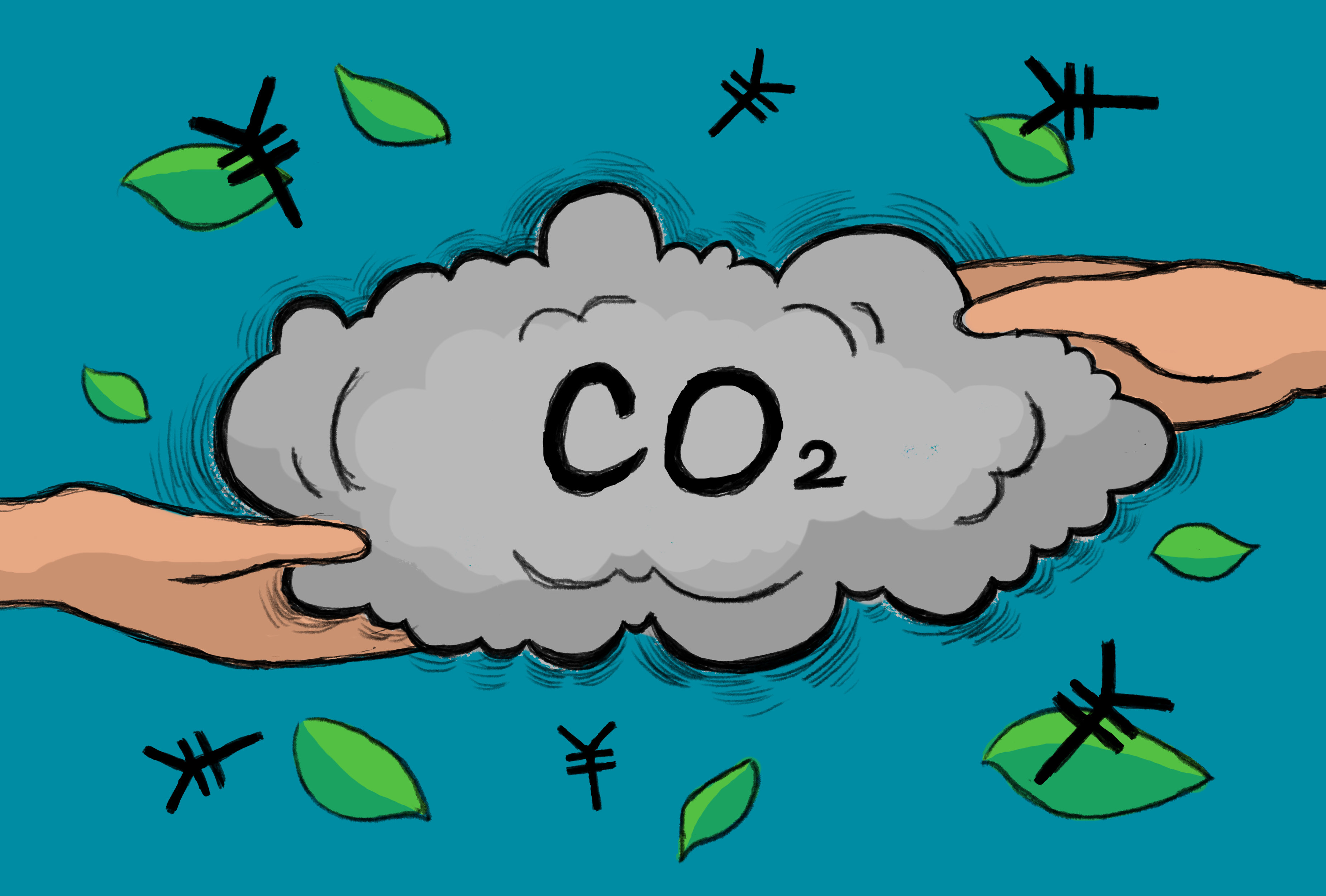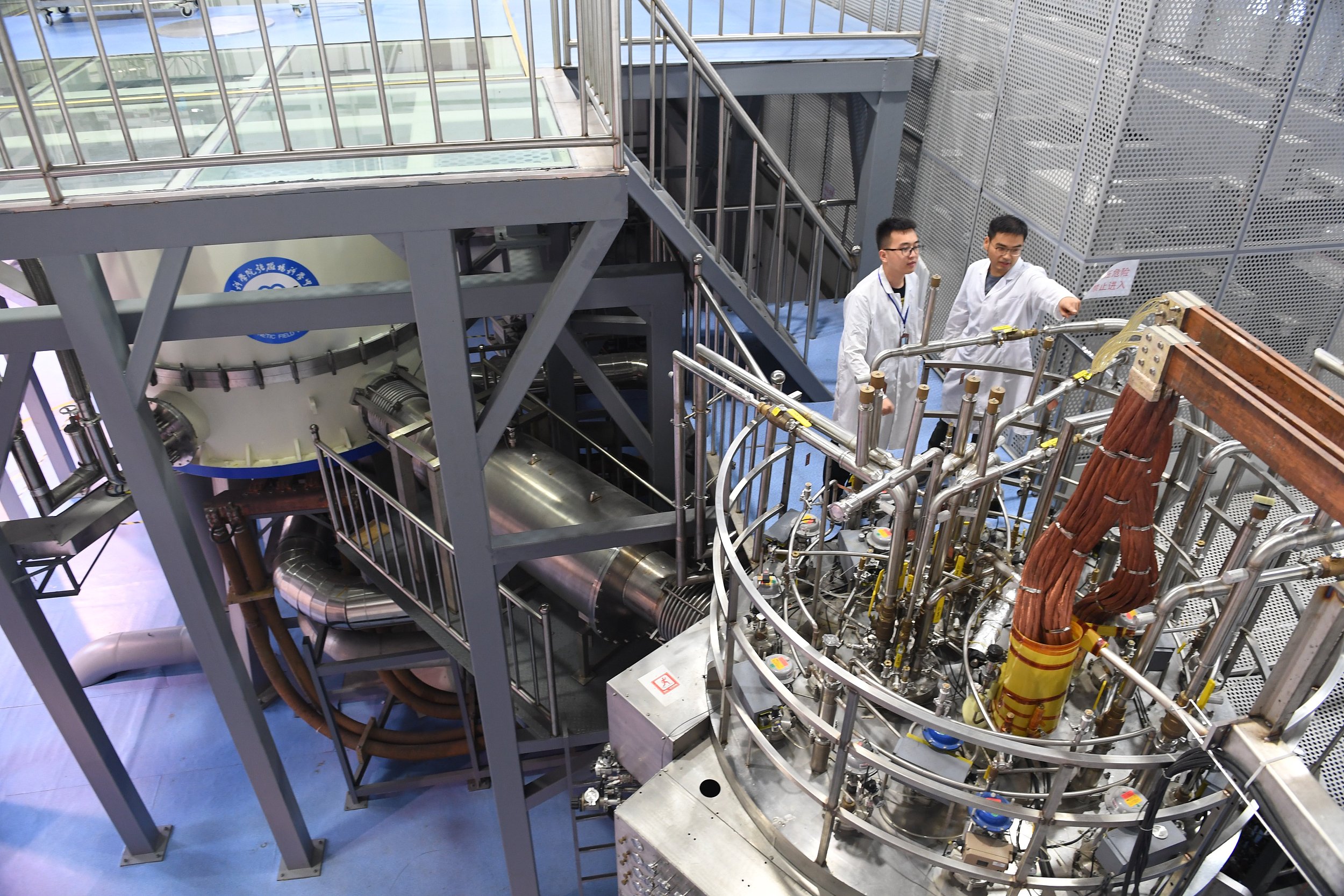NDRC Enhances Control of Energy Consumption

Carbon emissions trading is the buying and selling of the right to emit a tonne of CO2 or equivalent.(PHOTO: VCG)
By CHEN Chunyou
China has been contributing to the global fight against climate change by taking measures to realize the goals of peaking carbon dioxide emissions and achieving carbon neutrality.
Recently, a plan was released by National Development and Reform Commission (NDRC) to further promote the double control system, which means both the quantity and intensity of energy and resources consumption need to be controlled. The double control action is necessary to promote adjustment of the economic structure and protect the environment.
Five principles are put forward in this plan, namely, adhere to the combination of prioritizing energy efficiency and ensuring rational energy consumption, combining universal needs and employing differentiated ways to solve specific cases, combining government regulations and a market-based mechanism, combining incentives and constraints, as well as implementing overall planning and regulations.
According to the plan, for major national projects that meet relevant conditions, approved by the CPC Central Committee and the State Council, the energy consumption will be assessed and reduced accordingly in accordance with the principle of "shared responsibility by central and local governments."
In the meantime, strict control will be exerted over the projects that consume high energy and have high emissions. NDRC, in conjunction with relevant departments, will urge local governments to establish a list of projects with high energy consumption, which will serve to implement a classified control. This will push local governments to change their growth modes and adjust their economic structure to improve energy use efficiency. This is also an important means to increase the flexibility of total energy consumption control.
Great attention is paid to the role of the market in allocating resources. The national market for trading energy-consuming rights should be accelerated according to the plan, and a trans-regional trading mechanism for total energy consumption indicators should be established, which jointly promote the flow of energy factors to high-quality projects, enterprises, industries and regions with favorable economic development conditions.
During the implementation of the double control system, NDRC will encourage local governments to implement energy budget management and carry out the evaluation of energy-consuming output performance, which will help local governments to be aware of their energy consumption. This will act as a basis for optimizing the allocation of energy factors, and prioritize household needs as well as ensuring the operation of the industries, such as the modern service industry, hi-tech industry and advanced manufacturing industry.
Local governments will be encouraged to increase the consumption of renewable energy. Considering that China's renewable energy will usher in a large-scale development in the future, the plan specifies that during the assessment of local energy consumption, regions that exceed their energy targets will have the excess deducted to encourage the better use of renewable energy.
According to the plan, the double control system will be functioning well by 2025, as the energy and resources will have been allocated more rationally and utilized more efficiently. By 2030, the double control system will have been further perfected, the intensity of energy and resources consumption will have realized a sharp decline, the total energy consumption will have been kept under reasonable control and the energy structure further optimized. By 2035, energy and resources will have been optimally allocated and the comprehensive conservation system will have become more robust, strongly supporting the realization of a steady decline of carbon emissions after reaching the peak.

